|
9/24/2023 0 Comments September 25, 2023Teaching | Mission Update & Prayers
watch above/read below
This Week's Teaching: "The Forgiving & Punishing God"
When God described himself to Moses in Exodus 34, he said that he forgives wickedness, rebellion and sin. But THEN he said that he doesn't leave the guilty unpunished. How do we make sense of that? I think there are two ways to understand this, but they're not either/or, they're both/and. Let's get to know the forgiving and punishing God.
TRANSCRIPT
So, imagine God comes to you and he takes your face in his hands and he says, listen to me. I am the Lord. I'm the Lord. That's my name. Yahweh, Yahweh. I'm not some impersonal force. I am the personal God. I am Yahweh. I am the Lord, the Lord. You can know me. And then he says, let me tell you about myself. I am the compassionate and gracious God. I am kind. You can trust me. And he says, I am slow to anger. I am patient. I don't want anyone to perish. I am patient so that everyone has opportunity to turn their lives around and get right. I am kind. I am patient. I'm slow to anger. And I am abounding in love and faithfulness. I love you so much. I love you so much. I am the loving and faithful God. I maintain love to thousands and I maintain love to you. I am good toward you. I am inclined toward your good. I am full of love and faithfulness. You can love me. You can count on me. And then he says, And I am the forgiving God. I forgive wickedness, rebellion and sin. Anytime that you have chosen to do what is wicked -- something that's not good, that's evil -- chosen wickedness, I'm inclined to forgive you. And anytime you have rebelled against me, knowing that I said one thing and you've done another thing, I am inclined to forgive you. And any time you have erred, any time you have sinned, any time you decided you weren't going to do something and you did it anyway, or any time you decided that you were going to do something and you failed to do it, I forgive sin. I am inclined to forgive you. I am inclined to forgive wickedness and rebellion and sin. That is my nature. What if God came to you and said that? What if God came to you and described himself to you that way? You would be enthralled. You would be filled with joy. You would be ready to turn toward him with anything that has been turned away from him. This is God. Yahweh, Yahweh, the Lord, Lord, he's kind, he's patient, he's good, and he's forgiving. He's forgiving. But then what if he said, Oh, I also punished the guilty. I will not leave the guilty unpunished. In fact, I punish the children and their children for the sins of the parents to the third and fourth generation. I'm a forgiving God, but I'm a punishing God. I will not leave the guilty unpunished. What would you do with that? There's two ways we can hear it. If he's saying that I forgive wickedness, rebellion and sin, but I will not leave the guilty unpunished, we could say the difference is people who ask for forgiveness or people who persist in guilt. We could say that, that forgiveness absolves the guilt. We could say that and that would be true. One John one says, "If we confess our sins, he is faithful and just and will forgive us our sins and purify us from all unrighteousness." This is our God that is not punishing the guilty for their sins. It's forgiving and purifying them from their sins. And this is a clear, true way to read it. But even with that, if there is forgiveness through repentance, and yet God punishes the children and their children for the sins of the parents to the third and fourth generation, does that mean that if my grandparents failed to ask forgiveness that God is going to punish me? What's with that? Or if I ask forgiveness, then somehow my kids don't have to pay for it. I think the second way we can hear this -- like, not to take at all away from the fact that there is forgiveness and that those who seek God's forgiveness are not punished as guilty. They will inherit eternal life. They are freed from the penalty of death. All that. That is slam dunk, done, deal. But, there's another way to read this, an additional way to read this, that God has woven wisdom into the fabric of creation. And part of that wisdom is that we reap what we sow. And so if someone commits an act of wickedness, they will experience things they're not supposed to experience and they will live with the consequences of that for the rest of their life. Now they may seek forgiveness. You may seek forgiveness and be granted forgiveness. You won't die in your sin, but you will live out the consequences of that choice. Someone who persists in wickedness will live with multiplied consequences of those choices. And they may, on their deathbed, or they may, at age 30, ask God to forgive them for all the wickedness they've done. And He will forgive them, and yet they will live out the consequences for as long as they're here. They will live out the consequences of that wickedness and their children and their children will live out the consequences for the choices to persist in wickedness. Or rebellion. If you walk down the rebellious path, you will end up in places that God said, don't go, and you will experience the consequences of that. The guilt of that action will bear punishment for you because God has sown wisdom into the very fabric of creation, and we reap what we sow. And so if you walk down the path of rebellion, not only will you suffer the consequences of that, but your children and their children will, because we wear out paths in rebellion and it's hard to get back out. Now you can ask God to forgive you and he does. He will free you from the penalty of eternal death. He will give you eternal life. He will even relate to you as if you are pure with him. He will forgive you. He will reconcile himself to you and he will reconcile you to himself. He will redeem you. All that. And yet you will likely need to live out the punishment of that guilt. And if you sin, if you decide to do something and don't do it, or if you decide not to do something and you do it anyway, and you err and you sin, you can call out to God and he'll forgive you for it. But the actions bear consequences. You reap what you sow. And so we can read this, that God allows our decisions to bear the consequences that they bear. We reap what we sow. And this is true. Is it unfair of God to let that happen? No, the opposite would be that anyone can do the worst things imaginable and they simply say a prayer and suddenly it undoes everything. And that would be to take away our free will. And God has -- whether you like it or not -- God has chosen to not take away your free will. And because of that free will, you get to sow good or bad. And because of that, you get to reap good or bad. You reap as you've sown. And so God, he comes to you, he takes your face in his hands and he says, I'm the Lord, I'm the Lord, you can know me. I'm kind. I am the compassionate and gracious God. This is my nature. And I'm slow to anger. You experience my patience that I haven't wiped you off the face of the earth. You experience my patience every day. That is so that you can be right with me. That you can turn from your sin, because I don't want anyone to perish. I am God. I am kind. I am patient. And I'm good. I am abounding in love for you. And I am faithful to the nth degree. And I am inclined to forgive you. I'm inclined to forgive you. Even if you may need to live out the consequences on this earth of the decisions you've made, I forgive you. I forgive you. And I will give grace to you to make amends. I will give grace and wisdom to your children to make right what you made wrong. And I will give grace and wisdom to their children to continue the process as you and your family "choose this day whom you will serve: we will serve the Lord." And if you find yourself paying for the consequences of your parents or their parents, God gives you grace and wisdom because he is God. He is kind. He is patient. He is good. And he forgives. And so now as you have time, turn to him, turn to him. And be forgiven and be reconciled. This is our God. And this completes Exodus 34, where God spoke to Moses and revealed himself. This is the God that we serve and that we have always served. This is "the LORD, the LORD." And Jesus is the exact representation of his being. Colossians 1. "God was pleased to have all his fullness dwell in Jesus and through him to reconcile to himself all things, whether things on earth or things in heaven, by making peace through his blood shed on the cross. Once you were alienated from God and you were enemies in your minds because of your evil behavior. But now, God has reconciled you by Christ's physical body through death to present you holy, in His sight, without blemish, and free from accusation, if you continue in your faith, established and true, and do not move from the hope held out in the Gospel. This is the Gospel..." The LORD, the LORD. He can be known. He is kind. He is patient. He is good. He loves you with all that he is. And he is inclined to forgive you. Turn from sin. Turn to him. And he will make you holy and pure and blameless and free from accusation. This is our gospel. This is our gospel. Turn to the Lord through faith in Christ. Amen. Mission Update: Portland, Oregon
0 Comments
Leave a Reply. |
AuthorRoger Shenk is the pastor of X242, a network of microchurches. Archives
July 2024
Categories |
Search by typing & pressing enter

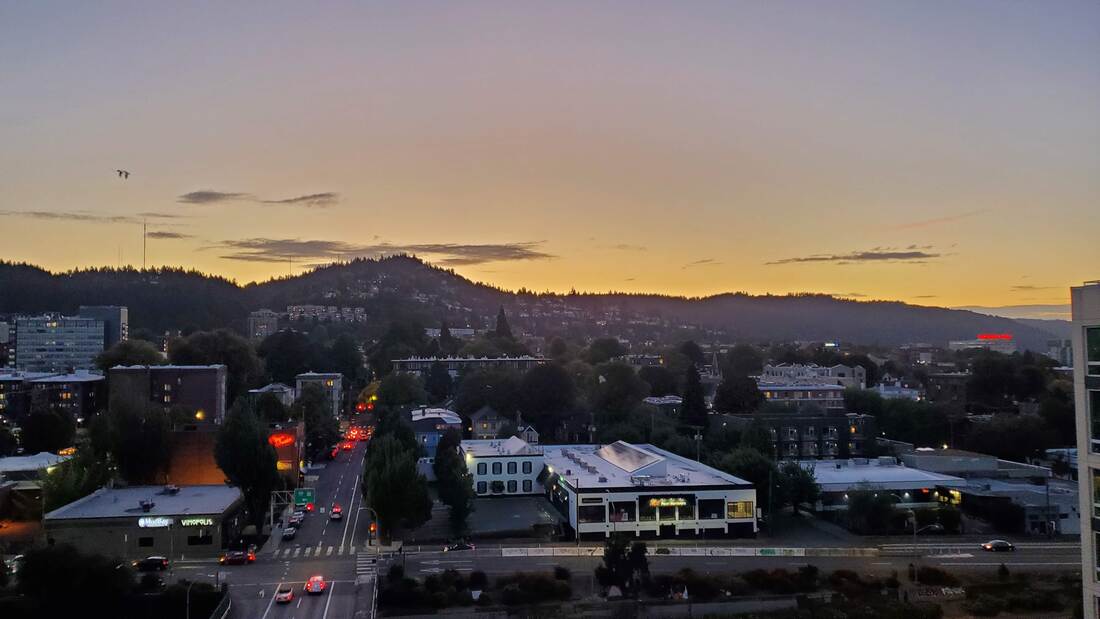
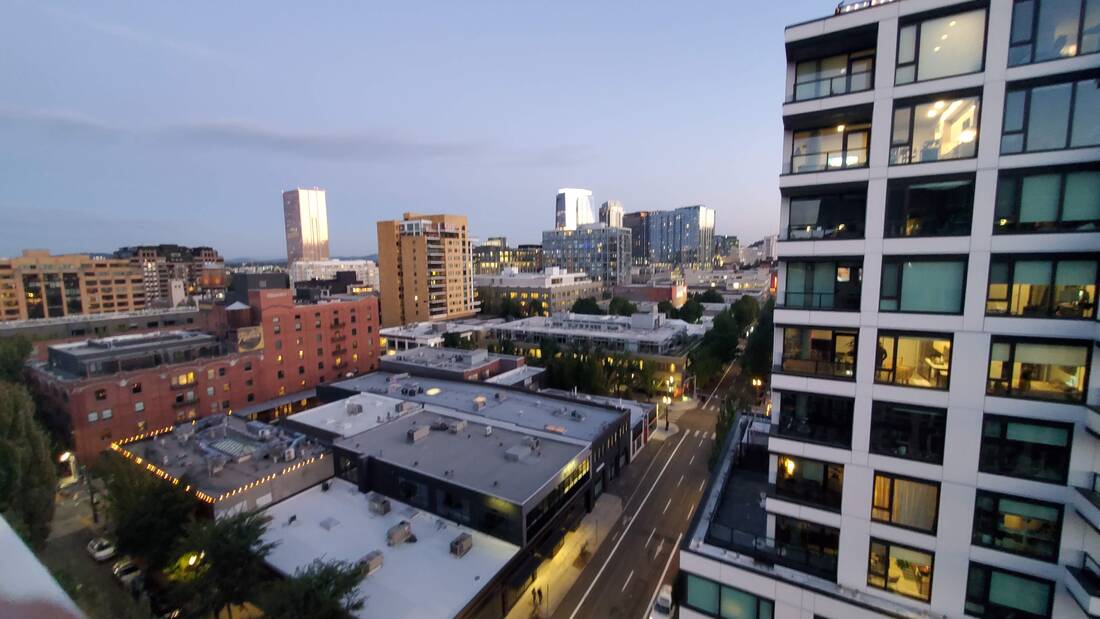

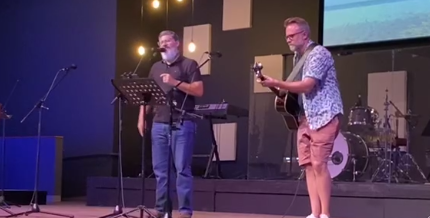
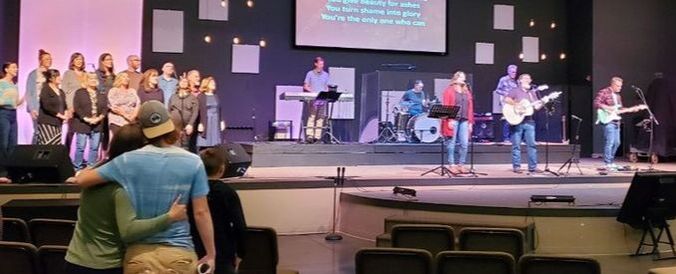
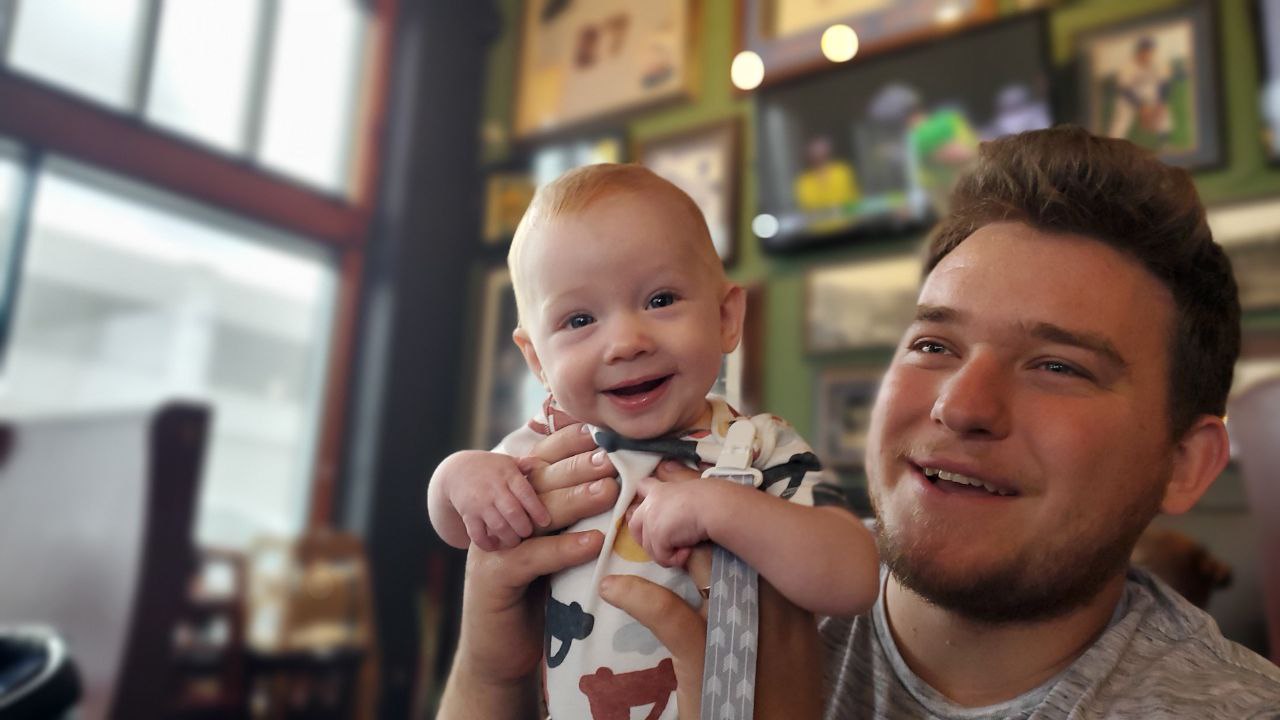
 RSS Feed
RSS Feed